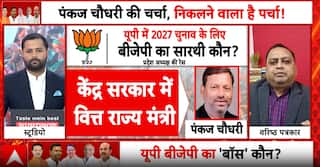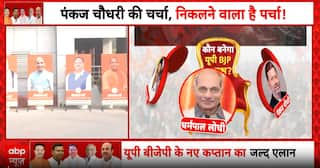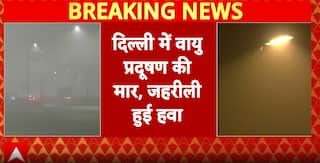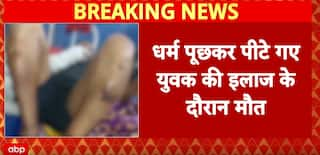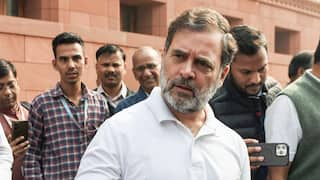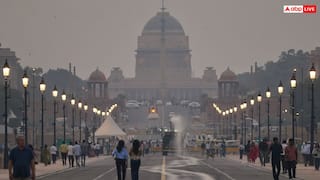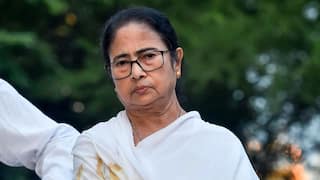25 Years Of TMC: How Fight Against BJP Reshaped Mamata Banerjee’s Politics And What's Next For Party

In the 1970s, when Bengal was dominated by Leftist and socialist political ideology, the arrival of Mamata Banerjee was like a storm. As a young woman in her early 20s, she was a leader of the West Bengal Chhatra Parishad, the student wing of the Indian National Congress. Her political career began with opposition to the Left, as a member of the Congress, but she severed all ties with the grand old party in 1998 saying it was not interested in opposing the Leftist regime, and formed the All-India Trinamool Congress (TMC).
In the politics of West Bengal, which was dominated by elite men, women played a minor role. Numerous people had called Mamata an unpredictable and indecisive politician. Coming from a humble background, she was not erudite unlike the Left-wing elite, and had no sophistication, but she was begging for a change and was here to stay.
This month, her Trinamool Congress turned 25. Mamata Banerjee's politics over the two decades has been among the most colourful in India. Her fight against the Left rule is well known and an important part of India's modern political history.
But with the Bharatiya Janata Party (BJP) entering the picture in West Bengal, Mamata got a new opponent to fight, and that saw a dramatic shift in her politics. After expelling the Left from Bengal, her fight is now primarily directed against the saffron party, and her political future is undoubtedly tied to this conflict.
Mamata Banerjee's political journey has been marked by a diverse range of experiences. Here is a look:
Demonetisation Moment
The year 2016 marked Mamata Banerjee's second term as the chief minister of West Bengal. During and after this election, she realised that the BJP was gaining support in the state. It was at this time that the Rashtriya Swayamsevak Sangh and the BJP began establishing their organisations among the Bengali populace. In the Bengal assembly elections of 2016, the BJP won only three seats, but its organisation was taking shape. To establish the organisation, the RSS recruited Dilip Ghosh and appointed him Bengal unit president of the BJP in 2015. Ghosh, a grassroots Swayamsevak, was generating buzz throughout the state.
This is the year when Prime Minister Narendra Modi announced demonetisation in November. Mamata Banerjee recognised that it was the optimal time to take to the streets in opposition to the BJP. On one hand, taking to the streets to protest the demonetisation decision thrust her back into the national political spotlight, and on the other it allowed her to remind the people of Bengal that her political opponent is no longer the Left but the BJP.
2018 Panchayat Election Conflict
In 2017, the TMC suffered a major setback when Mukul Roy, the party's then second-in-command, defected to the BJP. Very few people have ever earned Banerjee's trust. Her nephew Abhishek Banerjee has now emerged as her successor, but during that time Roy was Banerjee's most trusted advisor and strategist. Roy's entry into the BJP breathed new life into the saffron party in Bengal, as he brought forth a number of issues related to the state's grassroots politics. This is when the BJP began launching issue-based attacks against the TMC and simultaneously angered Mamata Banerjee by openly chanting "Jai Shri Ram”. Indeed, Roy was aware of how to combat Mamata Banerjee.
Mamata Banerjee realised that the fight against the BJP was mandatory and that there was an immediate need to stop the party’s rally in Bengal. At this point, the panchayat election became the most significant for her. The 2018 panchayat election was among the most violent in Bengal's recent history. Many Bengali journalists and political analysts have noted that the widespread violence that erupted during the election occurred right under Mamata Banerjee's nose and that she was fully aware of the situation. Later, prior to the assembly elections in 2021, Mamata and her party colleagues repeatedly apologised to the people for the violence. This violence, however, had its impact. In Bengal, the BJP did grow as an alternative, while the politics of the Left became irrelevant.
Lok Sabha Regression In 2019
After the 2018 panchayat elections, the BJP grew desperate and, with the assistance of Mukul Roy, began to recruit key TMC defectors. Due to the violence, the grassroots population was already agitated against the TMC. The BJP utilised this sentiment and launched a massive grassroots-to-crown campaign. Multiple leaders, including Prime Minister Narendra Modi, Home Minister Amit Shah, and others directed the 2019 Bengal Lok Sabha election campaign. Mamata Banerjee realised for the first time that the BJP was not just another political force, but one she would have to defeat in every way possible. The BJP won 18 of the 42 seats in the Lok Sabha.
This TMC defeat altered Mamata Banerjee's political stance. She began working on policies and discussing them with increasing frequency. Similarly, she brought her nephew Abhishek Banerjee and introduced him as her successor. The TMC's entire game plan changed after 2019. The focus of the party shifted to Bengal, and Mamata Banerjee decided for the first time to alter course. As she realised there was no turning back, the battle against the BJP grew fiercer.
The Aggressive 2021 ‘Comeback’
The BJP began a massive poaching campaign in Bengal in 2019. They recruited a number of senior TMC leaders between 2019 and 2021. From the BJP to the media, it was believed that Mamata Banerjee would lose the 2021 Bengal assembly elections. However, she did not stop. As suggested by nephew Abhishek, she sought the aid of poll strategist Prashant Kishor who modified the TMC's strategy, and Mamata adopted the majority of his recommendations.
This is the first time that every TMC leader, including Mamata Banerjee, began discussing the party's distinctive Bengal government policies. Amit Mitra, the then finance minister of Bengal and renowned economist, was one of Mamata's closest confidants who created her economic and governance models. The entirety of her welfare programme relied on direct cash transfers. Prashant Kishor had said then how the TMC was not solely focused on the success of programmes such as Kanyashree, Rupashree, and Shabuj Saathi. During her campaign, Banerjee introduced additional direct cash transfer-based welfare programmes, such as Lakshmi Bhandar, which provides monthly financial assistance to women.
The BJP passed the Citizenship Amendment Bill in the Lok Sabha and Rajya Sabha prior to the 2021 Bengal assembly elections. This action caused widespread outrage in India. Mamata Banerjee took control of this protest in Bengal. The BJP believed it could appeal to Bengali voters like Matuas — their most important voter base, which consists of immigrants from Bangladesh and Dalits. The BJP was unable to utilise the Citizenship Amendment Act issue effectively in Bengal, but Mamata Banerjee seized this opportunity to reach out to the Muslim community and consolidate her support among them. During the election campaign, she avoided any Muslim appeasement, which has always been the BJP's primary point of attack. During the election campaign, Mamata endeavoured to demonstrate her Hindu identity more prominently. However, the CAA protest assisted her in this election.
The BJP, meanwhile, attempted to aggressively promote Hindutva in Bengal, which was unsuccessful because the majority of Bengal's population has been opposed to religiously divisive politics. In the Bengal assembly elections of 2021, the TMC won with an unprecedented majority. However, the BJP also expanded significantly.
The Barrage Of Scams, And Future Of Mamata Banerjee
After the TMC’s Bengal victory in 2021, several law and order and fraud-related issues arose. From Day One, the TMC administration was accused of failing to control widespread post-election violence against the BJP. The law and order situation deteriorated to the point where the Calcutta High Court began transferring the majority of cases to central agencies, such as the Central Bureau of Investigation and the Enforcement Directorate. During this period, a number of alleged scams and frauds, such as the teacher recruitment scam, came to light and top TMC leaders were found to be involved. During the investigations, former TMC general secretary and now-suspended cabinet minister Partha Chatterjee, the district president of the party in Birbhum, party strongman Anubrata Mondal, and a number of other prominent leaders were placed behind the bars. All of these frauds and accusations have harmed Mamata Banerjee's reputation. To what extent it will affect the next elections, however, remains to be seen.
Mamata Banerjee, one of the most aggressive critics of the BJP today, is a crucial opponent in the opposition’s fight against the saffron party. It is common knowledge that her absence precludes any successful opposition alliance. However, Mamata Banerjee is attempting to go national by gaining control of other states. From Goa to Tripura and Meghalaya, the TMC has attempted to expand its base in a number of other states, but its efforts have not yet been fruitful.
Her politics requires a course correction. As long as the party is in disarray in Bengal, she cannot look beyond the state. Mamata must also accept that her party is a Bengal-centric political party that may not perform well in other states. Similarly, the time has come for TMC and Mamata to realise that battling the BJP and weakening other opposition parties in the states in an effort to expand nationally cannot occur simultaneously.
Her fight against the BJP has placed Mamata Banerjee in a position where her administrative and political expertise will be indispensable to the opposition. As an opposition leader, she possesses unparalleled administrative and political experience. No other political leader in the opposition has a comparable background in both politics and administration. The TMC has achieved much in 25 years but Mamata Banerjee and her party now have the task of preserving and continuing the legacy by playing their role as an effective government where they are in power and a responsible opposition where they are not.
The author is a Columnist and Doctoral Research Scholar In Media & Politics.
[Disclaimer: The opinions, beliefs, and views expressed by the various authors and forum participants on this website are personal and do not reflect the opinions, beliefs, and views of ABP News Network Pvt Ltd.]








